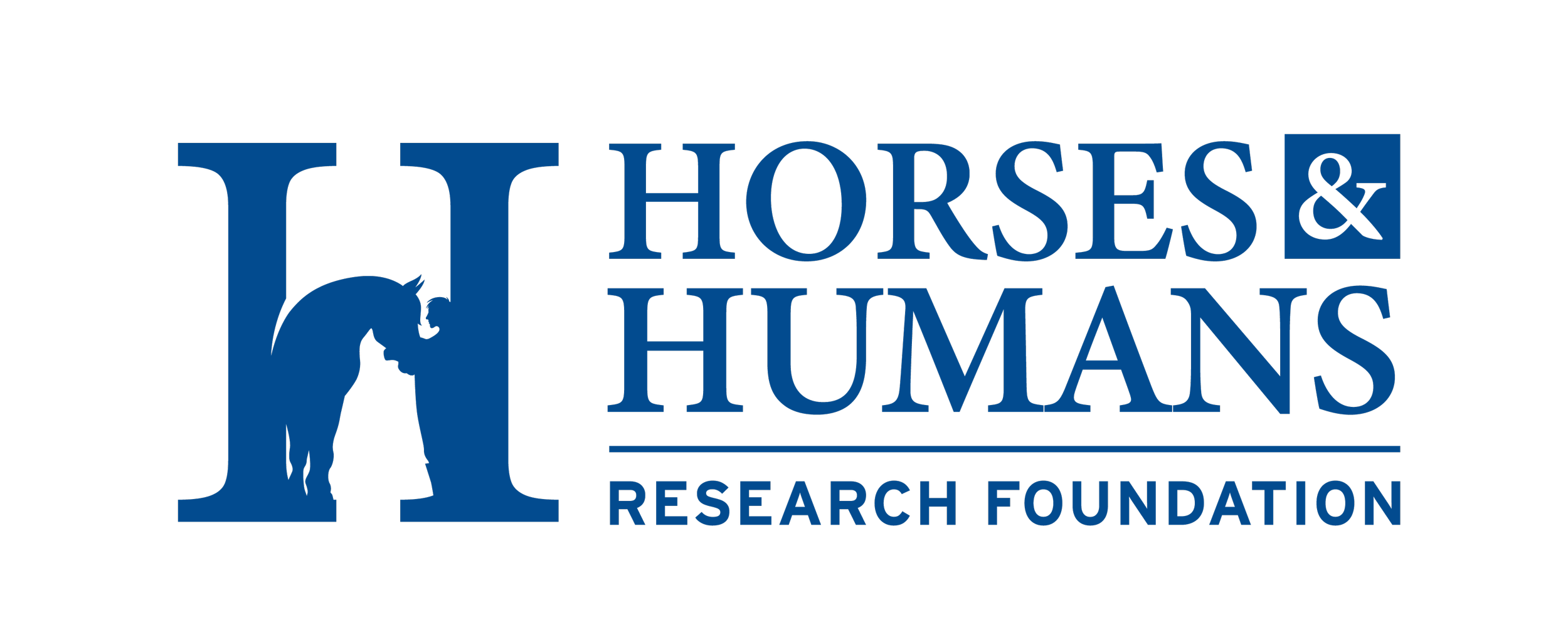FOR IMMEDIATE RELEASE:
Research Grant Awarded to Investigate Psychophysiological Effects of Equine-assisted Therapy on Horses and in Veterans Diagnosed with Post-traumatic Stress Disorder (PTSD)
Chagrin Falls, Ohio, October 23, 2019. Horses and Humans Research Foundation has awarded a $50,000 grant to Principal Investigator, Dr. Laurie McDuffee and her team from Atlantic Veterinary College, University of Prince Edward Island. The purpose of this project, Psychophysiological effects of Equine-assisted therapy on horses and in veterans diagnosed with post-traumatic stress disorder (PTSD), is to explore the efficacy of equine facilitated psychotherapy (EFP) on human-horse dyads through changes in measures of stress hormones and Post-traumatic stress disorder (PTSD) symptoms.
HHRF Board President, Pam Cusick, shares “We are very excited about this study as it includes both physiological measures and standardized psychological tests. These measures will provide depth to the understanding of the horse-human relationship and we eagerly anticipate the results.”
Building on previous research, this study will explore the impact of an 8-week therapy program that partners horses to alleviate stress in veterans diagnosed with PTSD. Researchers will collect data from humans and horses that measure stress using both physical (i.e. cortisol, oxytocin, heart rate data, and standardized assessment) and standardized psychological tests. Together these measures will enable the researchers to better understand how the horse-assisted therapy program influences the recovery of veterans diagnosed with PTSD and related mental health symptoms (i.e. anxiety and depression). Sixteen veterans will receive 8-weeks of therapy (once per week) consisting of grooming and leading a horse under the direction of a registered psychologist. Self-reported information about PTSD symptoms, anxiety, and depression will be assessed at the start of the program, after week 4 of the program, at the end of the program, and two months following the program.
Saliva and blood samples will be taken from veterans and horses during each session. Data analysis will compare data collected at each point in the therapy program. This study will be unique in that data will be collected from humans and horses at the same time to better understand the human-horse relationship during therapy.
Mission: Through sustained investment in rigorous research, HHRF serves as a catalyst to advance global knowledge of horse-human interactions and their impact on health and wellness.
Horses and Humans Research Foundation (HHRF) is dedicated to funding research to investigate the equine-assisted activities and therapies field. Since its founding, HHRF has awarded over $650,000 in professional research efforts led by fourteen research teams. HHRF is a non-endowed foundation dependent solely on donations. To make a donation and/or learn more about this and other Horses and Humans Research Foundation projects visit http://www.horsesandhumans.org
###
Contact: Ken Boyden, JD, EdD, Executive Director
Horses and Humans Research Foundation
PO Box 23367
Chagrin Falls, OH 44022
Email: info@horsesandhumans.org




